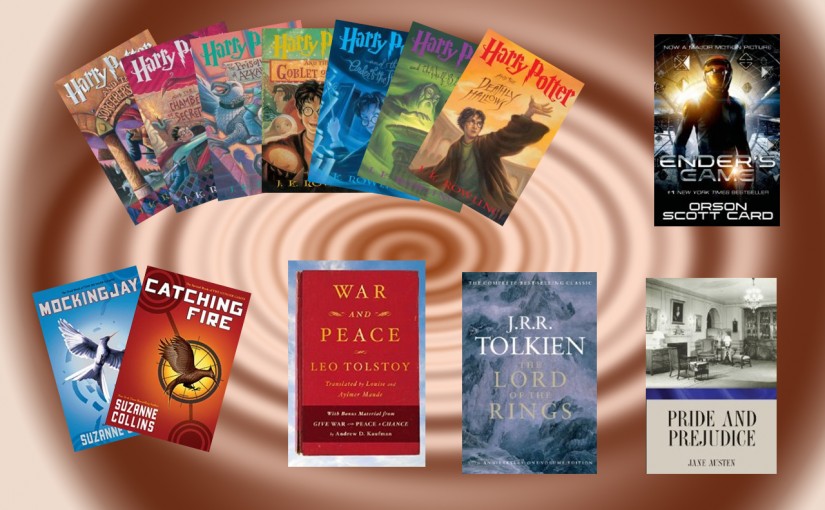I used to dislike reading novels, because they are not real, and because reading them takes too much time. Last year, however, I started reading novels again. What gets me back into it was Harry Porter series. It is delightful to know Hogwartz, the Gryffindors, the house ghosts, the quidditch cup, the leaky cauldron, and most of all Harry Porter and his friends and enemies. But I have to confess that I am one of those people whom serious readers despise: I watched the movies first and then decided to read the novels. I am a slow reader, and knowing that it will take me a long time to finish a book, I choose very “carefully”.
Fantasies like Harry Porter series and science fictions like Ender’s Game interest me the most because they inspire wonder and imagination, but like realism dramas, they all offer insights into human natures. On this, Orson Scott Card, the author of Ender’s Game, wrote:
Why else do we read fiction, anyway? Not to be impressed by somebody’s dazzling language – or at least I hope that’s not our reason. I think that most of us, anyway, read these stories that we know are not “true” because we’re hungry for another kind of truth: The mythic truth about human nature in general, the particular truth about those life-communities that define our own identity, and the most specific truth of all: our own self-story. Fiction, because it is not about somebody who actually lived in the real world, always has the possibility of being about ourself.
The flip side of the question of “why reading novels” is “why writing novels”? I believe most writers write because they want to or need to tell something. J.K. Rowling said in her interview with Oprah that it is necessary for her mental health to continue writing, and that through writing, she makes clear to herself what she wanted to tell. For example, why she detests Dolores Umbridge is the sense of self-righteousness that justifies self-interests, or that she lets Molly Weasley be the person to kill Bellatrix Lestrange tells something about her views on feminism. Apart from social and political connotations or opinions of human nature, there is this most remarkable effect of a good story: to make the readers love their own lives. And I quote Leo Tolstoy on this:
The goal of the artist is not to solve a question irrefutably, but to force people to love life in all its countless, inexhaustible manifestations. If I were told I could write a novel in which I would set forth the seemingly correct attitudes towards all social questions, I would not devote even two hours of work to such a novel, but if I were told that what I write will be read in twenty years by children of today and that they will weep and smile over it and will fall in love with life, I would devote all my life and all my strength to it.
